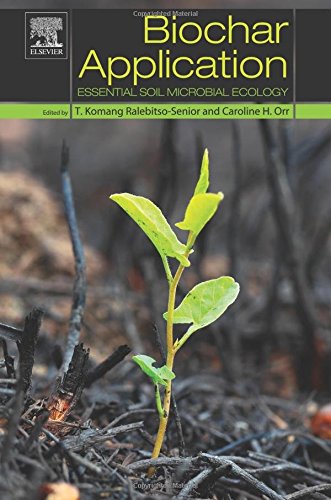

Most ebook files are in PDF format, so you can easily read them using various software such as Foxit Reader or directly on the Google Chrome browser.
Some ebook files are released by publishers in other formats such as .awz, .mobi, .epub, .fb2, etc. You may need to install specific software to read these formats on mobile/PC, such as Calibre.
Please read the tutorial at this link. https://ebooknice.com/page/post?id=faq
We offer FREE conversion to the popular formats you request; however, this may take some time. Therefore, right after payment, please email us, and we will try to provide the service as quickly as possible.
For some exceptional file formats or broken links (if any), please refrain from opening any disputes. Instead, email us first, and we will try to assist within a maximum of 6 hours.
EbookNice Team

Status:
Available4.6
11 reviewsBiochar Application: Essential Soil Microbial Ecology outlines the cutting-edge research on the interactions of complex microbial populations and their functional, structural, and compositional dynamics, as well as the microbial ecology of biochar application to soil, the use of different phyto-chemical analyses, possibilities for future research, and recommendations for climate change policy.
Biochar, or charcoal produced from plant matter and applied to soil, has become increasingly recognized as having the potential to address multiple contemporary concerns, such as agricultural productivity and contaminated ecosystem amelioration, primarily by removing carbon dioxide from the atmosphere and improving soil functions.
Biochar Application is the first reference to offer a complete assessment of the various impacts of biochar on soil and ecosystems, and includes chapters analyzing all aspects of biochar technology and application to soil, from ecogenomic analyses and application ratios to nutrient cycling and next generation sequencing. Written by a team of international authors with interdisciplinary knowledge of biochar, this reference will provide a platform where collaborating teams can find a common resource to establish outcomes and identify future research needs throughout the world.